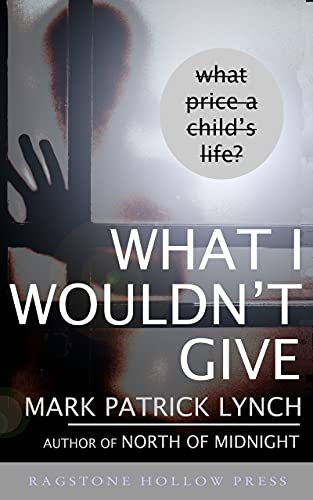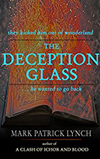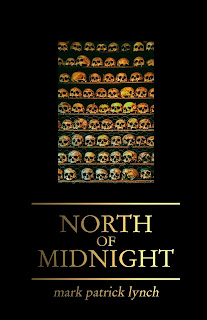experiments in e-books (i)
Thursday 30 August 2012–
e-books,
experiments in e-books,
Kindle,
self-publishing,
What I Wouldn't Give
So you’ve written your novel, your novella, your short story, your short story collection. Maybe you’ve written more than one novel. Maybe you have short stories coming out of your ears. And perhaps you’ve had some luck finding homes for the stories and even the odd novel. You’ve flirted with mainstream publishing – by which I mean an established publisher of books, rather than a guy producing his own imprint out of his bedroom (honourable and noble enough though this is of him) – and it didn’t lead to a lifelong romance. You still love writing. You still love books. Your heart’s not broken, but possibly it’s bruised.
You’ve got a novel that’s not seen print. Maybe more than one. You’ve a hundred thousand words or so of short stories that never really found a home. That novella, who was ever going to publish it anyway? I mean, come on, realistically. It would be commercial suicide on a publisher’s part. And besides, you didn’t really know whose door to knock on to help get it into print in the first place.
So . . .
At some point the lure of the e-book gets to you. If it’s not at the top of your list of publishing ambitions, then somewhere further down – take a glance below “Winning the Nobel Prize for Literature” and search somewhere around “Getting At Least One Person To Buy Your Book At A Book Signing” – you’ll eventually find it. Straight-to-e-book, like the good old days of straight-to-video.
But is it a good idea?
I think the only answer to that is “it depends”.
Depends on how much work goes into it, depends on how much work you want to put into it, depends on who’s publishing it, depends on what your expectations for it are, depends on what exactly it is you’re publishing.
For the sake of brevity (and because it’s something I have a clue about) we’ll stick to publishing fiction.
The first and finest course a book can take to print is still through a mainstream publisher. Some – many – self-published authors who’ve had some success may dispute that. They’ll talk about how much more they’re earning by selling directly through Amazon or Smashwords etc, how they wouldn’t give away their back catalogue unless they had a bigger stake in the royalties than any publisher will offer, creative control in promotion, and a bunch of other things up to and including someone to pet their poodle while they use the lavatory. (I exaggerate, of course, for comedic effect. But only a little.)
It’s interesting to hear them talk. To a point.
Because mostly all they seem to talk about is the money. Every self-published e-book author you read interviewed or talking on the net usually starts off by telling you how much money he’s making. He tends to gloss over the actual writing and craft. Read some of the stuff that comes through into printed books after it’s found success electronically and you could believe that the quality of the writing was hardly ever a concern in the first place. At least not to the writer.
Often all it would take to fix those books is someone casting a sharp, critical eye over the manuscript and offering suggestions to improve things here and there. Like making the lead character’s name consistent throughout the book or pointing out that it’s quite a feat of biology to “shake his hand with a warm smile”.
There are things every writer needs, from the initial sympathetic (or stern) feedback from early drafts, to editing, copy-editing, proof reading, and even to someone saying “Hey, you know, this sucks. But if we delete this chapter and move this one here…” I won’t pretend all mainstream publishers give you that. The industry has changed from what it once was and there are now writers who’ve never met an editor in person and have just seen the Word file sent to the publishers printed and bound and out on the shelves. But for the most part, your chances of getting the things you most need to make your book better than it was come from being published by professionals.
The next question up is how can you tell the professionals from the hopeful amateurs?
The answer is it isn’t always easy. Especially in the case of small e-book publishers, which is what we’re concerned with here. Some e-book publishers are taking on plenty of half-decent and good works (often from writers who’ve fallen off the track of mainstream publishing) in the hope that one of them goes viral and starts selling in big numbers. And that’s fair. It’s commerce, which is what they’re interested in. But is that good for you?
Swings and roundabouts.
Although some of these e-book publishers will take the drudgery of producing the books and setting them out in the correct(ish) format and provide a cover, and they may even offer some feedback and editing, it’s doubtful that they’ll invest in you as heavily as a publisher sinking money into actual print copies. You’ll be listed on their imprint’s homepage, promoted in newsletters, linked to from their site. But beyond that… Well. Lap of the Gods stuff.
But you will have had one very important boost if you are picked up by one of these e-book firms. Someone will have read your work (unless the whole thing’s a con act, like old vanity press publishing) and deemed it worthy to see print. And that is satisfying indeed and gives a certain sort of stamp of approval. It legitimises what you’re doing. Takes away that whiff of desperation self-publishing often carries with it.
Something worth considering, then.
But what are your expectations? And how are they limited by opting to try your luck with a small e-book publisher?
If you want to put the books up on Amazon at the lowest list price (local sovereign currencies around the world will automatically adjust to the 99 cent lowest list price offered in the USA), an indie imprint e-book publisher is unlikely to help you there. Most indie imprint e-books sell for 1.99 to 4.99, depending. If you want to run promotional offers, or discount coupons, then the same issue is going to arise. And what if you’ve a variety of e-books you’d like to put up, in various genres? So far indie imprints seem to be as conservative, in their own way, as mainstream publishers who’d baulk at you handing in a crime novel after a science fiction thriller after a love story.
Maybe self-publishing is the way you’ll want to go if that’s the case.
It’s what I’ve tentatively decided to do with a few things that, for one reason or another, I’ve never really been all that confident will find a safe home elsewhere.
And so, as an experiment, learning as I go, I’m putting up on Amazon a 15,800-word novella or novelette, whatever you want to call it, depending on where the ever-shifting distinctions between the two are at right now, to see what will happen.
It’s called What I Wouldn't Give , and I’ll talk through the stages of starting out from nowhere – beginning with the writing – to the end point and actually coming up with product descriptions and listing the book on Amazon. I guess I’ll learn about the marketing as I go.
, and I’ll talk through the stages of starting out from nowhere – beginning with the writing – to the end point and actually coming up with product descriptions and listing the book on Amazon. I guess I’ll learn about the marketing as I go.
Stick around. Could be interesting.





